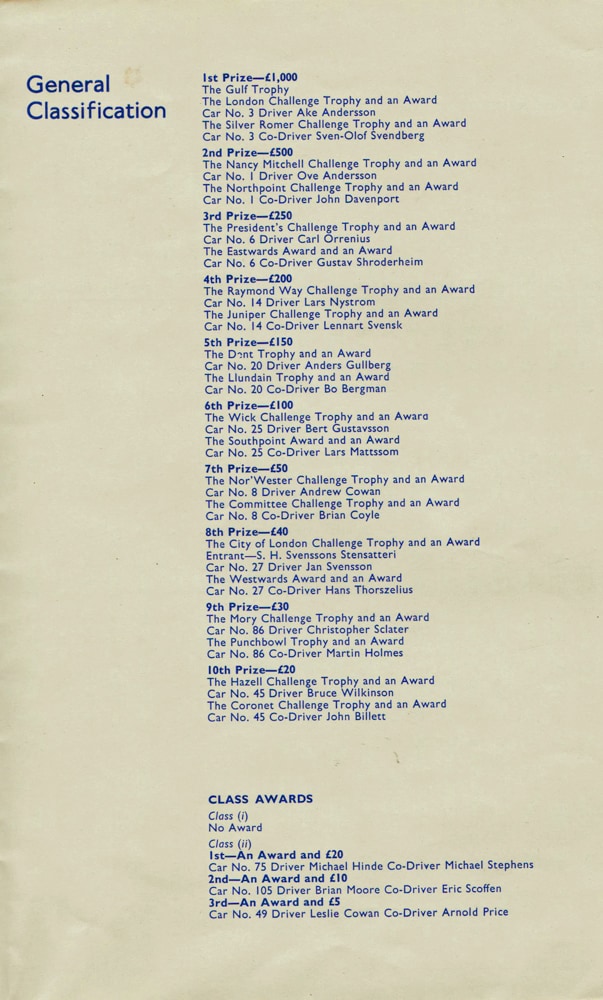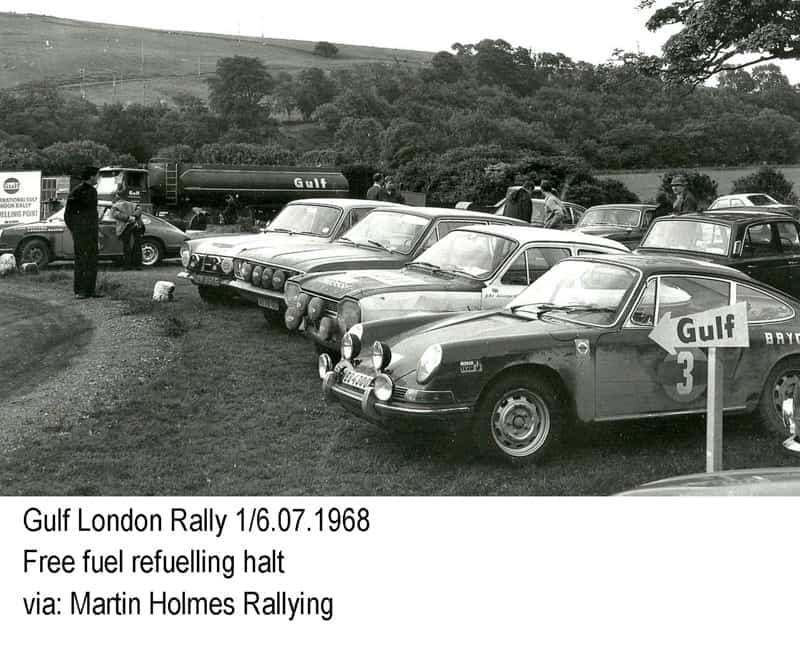 Scandinavian drivers came en masse to Britain for the 1968 Gulf London Rally, attracted by the generous prize fund (£1,000 for the winner, for example) and because of what the sponsor of the event offered every competitor.
Free petrol was supplied to competitors, not in itself a unique feature, but this time the sponsor donated not only the fuel, but paid the tax as well.
The cost of the regular road side pump fuel, particularly for private competitors, was a major item in their budgets, even if by today’s standards the costs were minimal. At six shillings (nowadays 30 pence) per gallon (4.5 litres), this was around one-twentieth of the cost of today’s roadside fuel.
Scandinavian drivers came en masse to Britain for the 1968 Gulf London Rally, attracted by the generous prize fund (£1,000 for the winner, for example) and because of what the sponsor of the event offered every competitor.
Free petrol was supplied to competitors, not in itself a unique feature, but this time the sponsor donated not only the fuel, but paid the tax as well.
The cost of the regular road side pump fuel, particularly for private competitors, was a major item in their budgets, even if by today’s standards the costs were minimal. At six shillings (nowadays 30 pence) per gallon (4.5 litres), this was around one-twentieth of the cost of today’s roadside fuel.
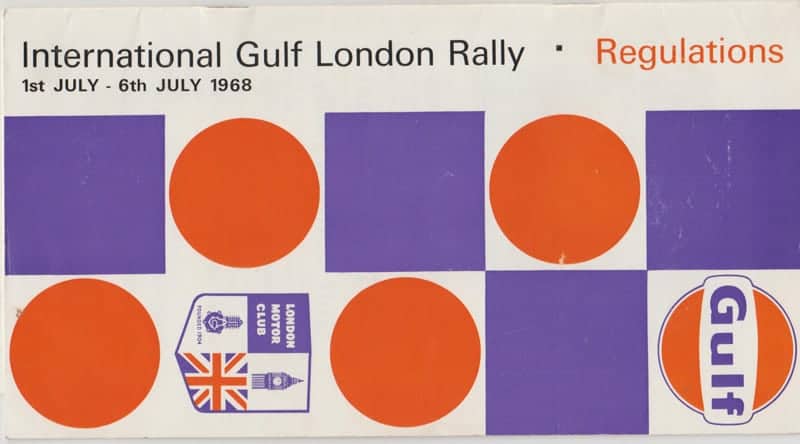 Rallying in every aspect was unbelievably inexpensive. The event entry fee was £30 and the cost of a pre-event “Full English Breakfast” at the official event headquarters (the Excelsior Hotel at Manchester Airport) was less than 10 shillings.
When Gulf first sponsored the London Rally they started to attract attention in unexpected quarters. The use of a commercial name as part of the title of a major international event was ground breaking in its day and was considered an affront by traditionalists.
The long-established Motor Sport magazine said this was a “kind of pollution” of the sport and reported that there was dissent in the motorsport industry.
Rallying in every aspect was unbelievably inexpensive. The event entry fee was £30 and the cost of a pre-event “Full English Breakfast” at the official event headquarters (the Excelsior Hotel at Manchester Airport) was less than 10 shillings.
When Gulf first sponsored the London Rally they started to attract attention in unexpected quarters. The use of a commercial name as part of the title of a major international event was ground breaking in its day and was considered an affront by traditionalists.
The long-established Motor Sport magazine said this was a “kind of pollution” of the sport and reported that there was dissent in the motorsport industry.
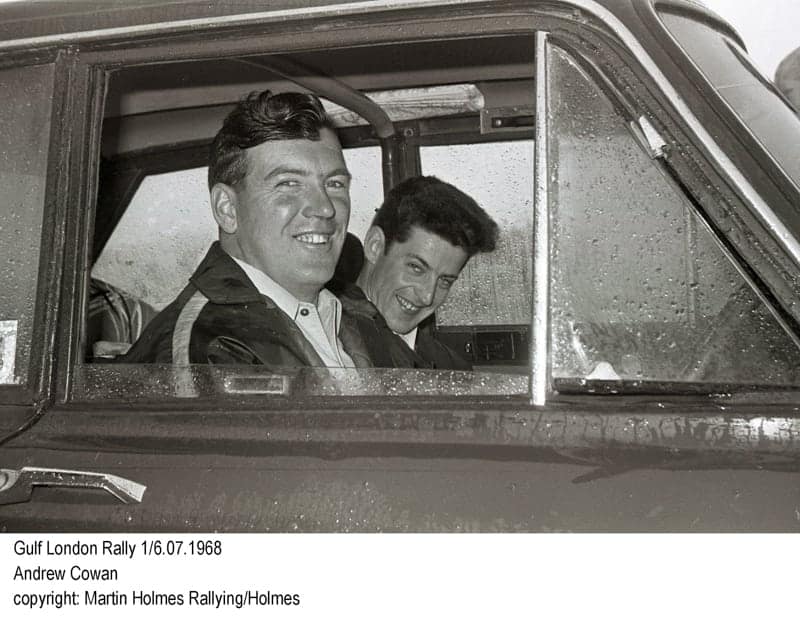 The highly regulatory Society of Motor Manufacturers and Traders, whose members included the companies which ran official rally teams, suggested that they should now boycott the event.
The teams bypassed the problems in various ways, including loaning their cars, personnel and equipment to their regular drivers.
The big challenge facing competitors was the format of the event. This was the fourth time the London Motor Club had run their international rally, the first two times as a two-night non-stop event, then in 1967 and 1968 as a three night event.
The 1968 event started at midday Tuesday, proceeded through four days and three nights until finishing in the afternoon of Friday. Apart from brief breakfast halts on the Wednesday and Friday, the only rest halt was a five-hour stop during Wednesday night.
The highly regulatory Society of Motor Manufacturers and Traders, whose members included the companies which ran official rally teams, suggested that they should now boycott the event.
The teams bypassed the problems in various ways, including loaning their cars, personnel and equipment to their regular drivers.
The big challenge facing competitors was the format of the event. This was the fourth time the London Motor Club had run their international rally, the first two times as a two-night non-stop event, then in 1967 and 1968 as a three night event.
The 1968 event started at midday Tuesday, proceeded through four days and three nights until finishing in the afternoon of Friday. Apart from brief breakfast halts on the Wednesday and Friday, the only rest halt was a five-hour stop during Wednesday night.
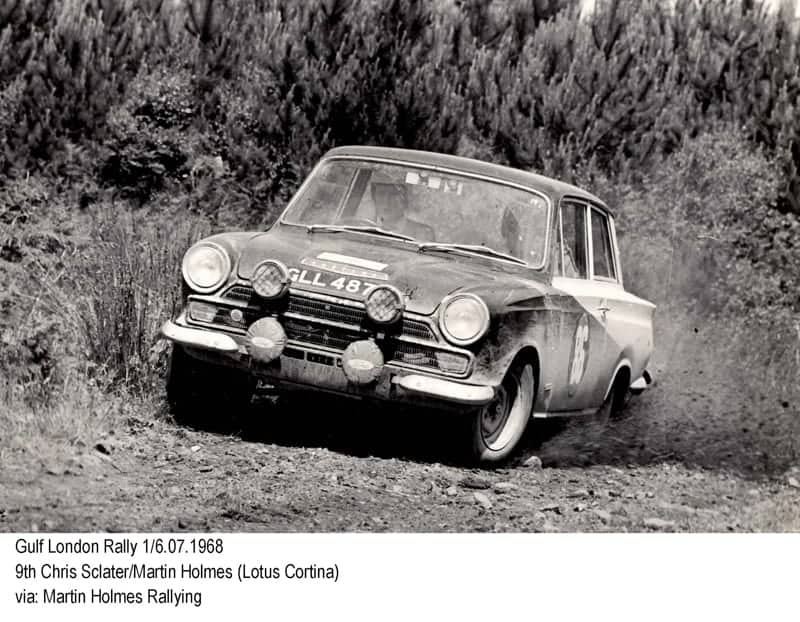
EPSON MFP image
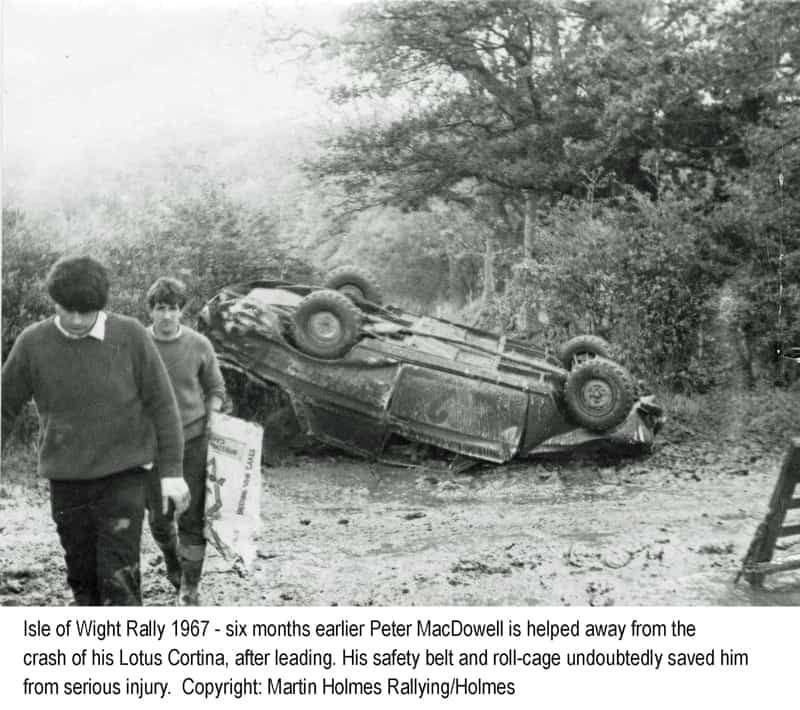 Nonetheless, the entry for the 1968 Gulf London Rally was splendid. BMC sent a special development Mini Cooper S for Tony Fall, Ford sent Escorts for Bengt Soderstrom and Ove Andersson, and Saab sent Tom Trana and Carl Orrenius.
There were Porsches and Opels from Scandinavia with varying degrees of factory or dealer support, and Andrew Cowan drove an official Group 6 Hillman Imp. 104 crews started the event.
The rally was predictably dominated by Swedish drivers. There as a long battle between the Porsche 911 of Ake Andersson and the Ford Escort TC of Ove (no relation) Andersson, which was won by the Porsche driver after his namesake had lost time off the road when unknowingly he was leading.
Nonetheless, the entry for the 1968 Gulf London Rally was splendid. BMC sent a special development Mini Cooper S for Tony Fall, Ford sent Escorts for Bengt Soderstrom and Ove Andersson, and Saab sent Tom Trana and Carl Orrenius.
There were Porsches and Opels from Scandinavia with varying degrees of factory or dealer support, and Andrew Cowan drove an official Group 6 Hillman Imp. 104 crews started the event.
The rally was predictably dominated by Swedish drivers. There as a long battle between the Porsche 911 of Ake Andersson and the Ford Escort TC of Ove (no relation) Andersson, which was won by the Porsche driver after his namesake had lost time off the road when unknowingly he was leading.
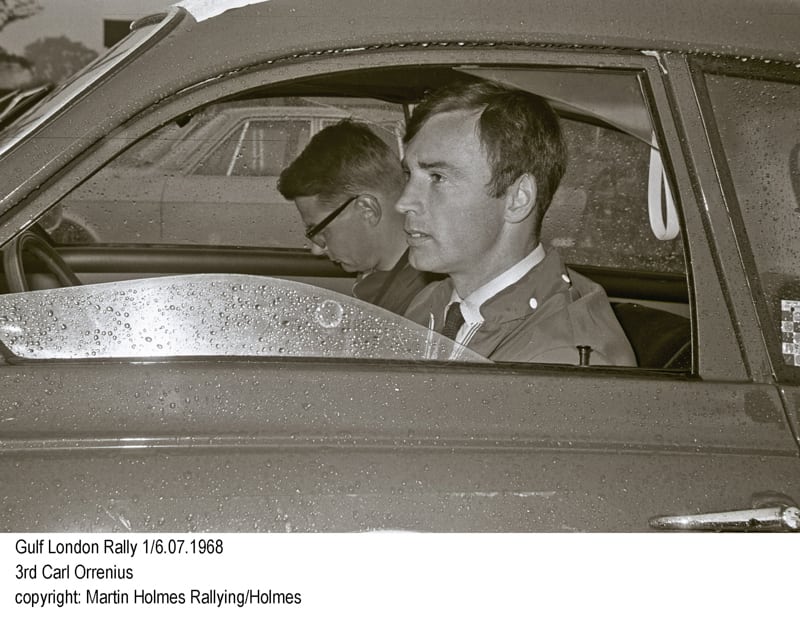 Despite staunch efforts on RAC Rallies over the preceding 10 years or so, this was to become the only major British rally to be won by a Porsche, though Ake won the British Charringtons RAC Historic Rally in 1993, again in a Porsche.
The top British driver was Andrew Cowan in seventh place, the second best British driver and top fully privateer in ninth place was Chris Sclater in an old obsolete Lotus Cortina. This is where I come into the story.
This was the first international rally for Chris, whose previous rallying had been in an old Ford Anglia. I knew this Cortina car well.
Despite staunch efforts on RAC Rallies over the preceding 10 years or so, this was to become the only major British rally to be won by a Porsche, though Ake won the British Charringtons RAC Historic Rally in 1993, again in a Porsche.
The top British driver was Andrew Cowan in seventh place, the second best British driver and top fully privateer in ninth place was Chris Sclater in an old obsolete Lotus Cortina. This is where I come into the story.
This was the first international rally for Chris, whose previous rallying had been in an old Ford Anglia. I knew this Cortina car well.
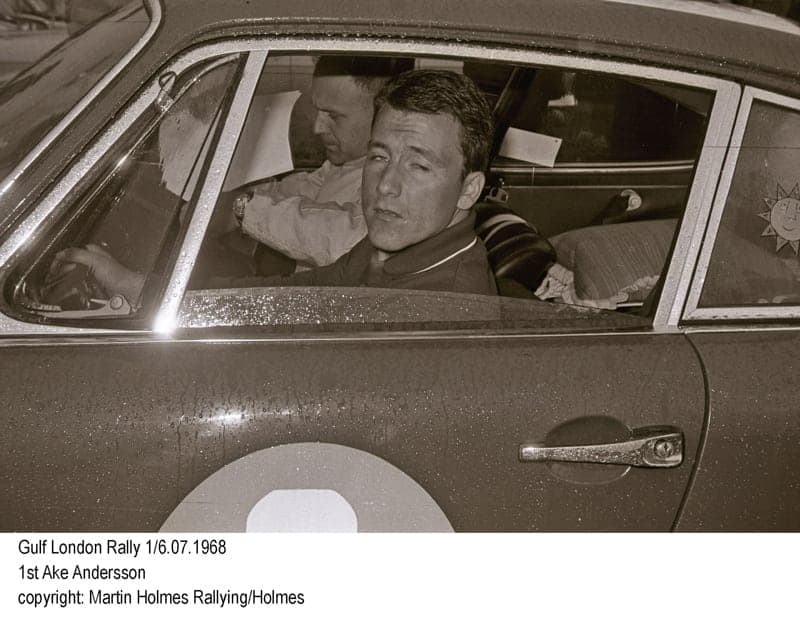 I had co-driven the car for Peter MacDowell on the British Isle of Wight Rally, which we had been handsomely leading before it was violently crashed end-over-end near the finish and needed to be re-shelled.
MacDowell had hoped to drive the repaired car on the Gulf London Rally, but this unexpectedly coincided with an important exam, so he offered the entry to Chris.
Things went well for us until we impacted a tree which broke the radiator. Unable to drive through the stage we found a route out of the stage, filled up with water and carried on to the next stage.
I had co-driven the car for Peter MacDowell on the British Isle of Wight Rally, which we had been handsomely leading before it was violently crashed end-over-end near the finish and needed to be re-shelled.
MacDowell had hoped to drive the repaired car on the Gulf London Rally, but this unexpectedly coincided with an important exam, so he offered the entry to Chris.
Things went well for us until we impacted a tree which broke the radiator. Unable to drive through the stage we found a route out of the stage, filled up with water and carried on to the next stage.
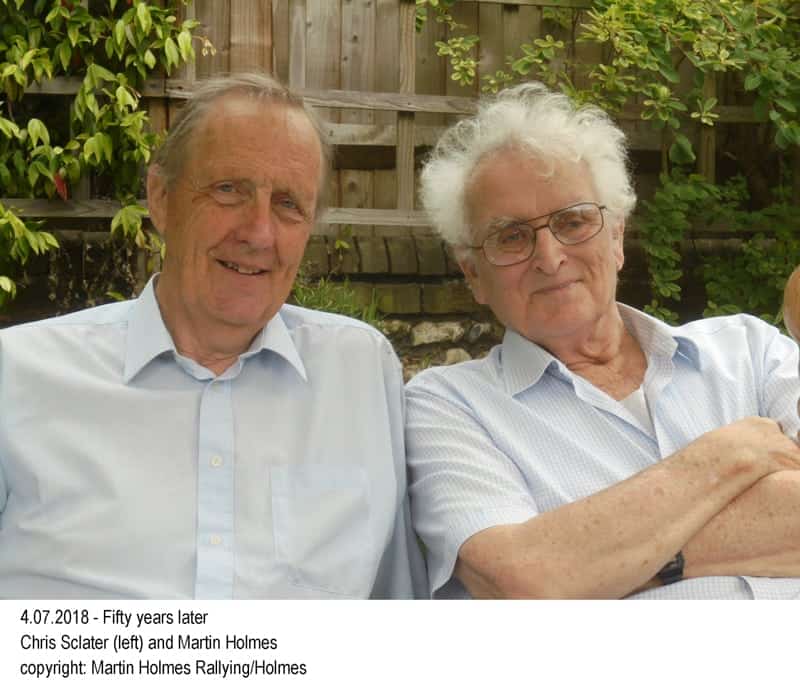 In those days there were no standardised rules on rallies. On this event, stages had unusually only to be attempted, not completed, incurring a specified maximum penalty.
When we reached the long-anticipated five-hour rest halt we were told by the Clerk of the Course, Mr Seigle-Morris, that we had been excluded. We demanded an urgent meeting with the officials where we went through the regulations clause by clause.
After two hours it was agreed that we had a valid alternative interpretation of the rules and we could continue on the event. One by one we climbed up the results.
In those days there were no standardised rules on rallies. On this event, stages had unusually only to be attempted, not completed, incurring a specified maximum penalty.
When we reached the long-anticipated five-hour rest halt we were told by the Clerk of the Course, Mr Seigle-Morris, that we had been excluded. We demanded an urgent meeting with the officials where we went through the regulations clause by clause.
After two hours it was agreed that we had a valid alternative interpretation of the rules and we could continue on the event. One by one we climbed up the results.
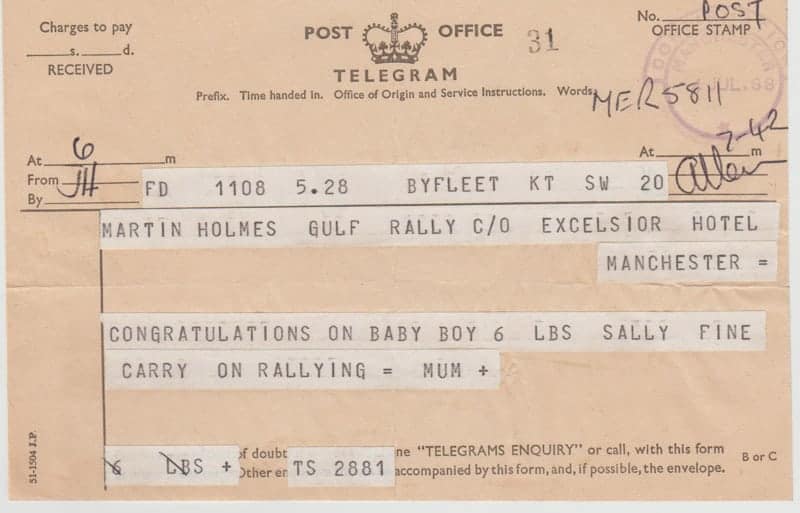 Meanwhile, a far more traumatic moment was waiting for me. During the rally my expectant wife had been taken to hospital where our son was born ahead of his due time.
Seigle-Morris placed a big notice at the next control announcing this news to the rally world. I was one of the last to find out I was now a father!
Notwithstanding, this rally had been his greatest achievement, Chris agreed to miss the prizegiving, drive me home and wait for me outside the Nursing Home.
Over the next 11 years we competed together on more than 50 rallies. Chris was British national champion in 1971 and together we went on to rally works cars for Datsun, Toyota and Vauxhall.
This year my son celebrated his 50th birthday with his family. Chris and I celebrated his 50th anniversary as an international rally driver with friends.
Meanwhile, a far more traumatic moment was waiting for me. During the rally my expectant wife had been taken to hospital where our son was born ahead of his due time.
Seigle-Morris placed a big notice at the next control announcing this news to the rally world. I was one of the last to find out I was now a father!
Notwithstanding, this rally had been his greatest achievement, Chris agreed to miss the prizegiving, drive me home and wait for me outside the Nursing Home.
Over the next 11 years we competed together on more than 50 rallies. Chris was British national champion in 1971 and together we went on to rally works cars for Datsun, Toyota and Vauxhall.
This year my son celebrated his 50th birthday with his family. Chris and I celebrated his 50th anniversary as an international rally driver with friends.
- Martin Holmes
